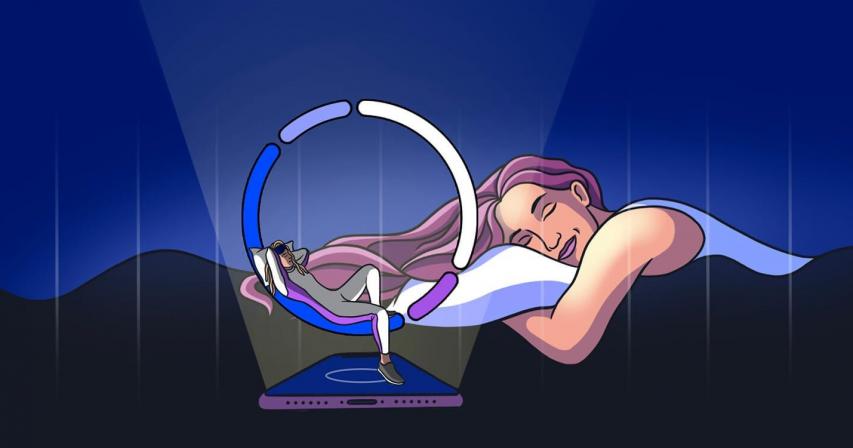Stress and Its Implications
- 3 years ago

The present-day world, a child of post-industrialism dangerously mixed with postmodernism, neoliberalism, and the rot of total nihilism, presents Earth dwellers with a seemingly simple life experience (well, at least when comparing to the previous centuries). It, per contra, is nothing short of Fata Morgana: all the thousands of the interweaving layers of traditions, cultures, routines, habits, and so on tend to complicate life. As Milan Kundera once wrote, it is an unbearable lightness of being, and it is, on the other hand, what makes life challenging, and thus - interesting.
The problem lies in the fact that solving challenges often brings stress into play. And stress is, to put it mildly, unhealthy for both your body and your mind of yours in a myriad of ways. Let's break down the etiology and pathogenesis of the phenomenon of stress right now, shall we?
To frame the telltale about the stress, it would be wise first to describe the human autonomous nervous system (ANS), and, more precisely, two distinct divisions of it: sympathetic nervous system (SNS) and parasympathetic nervous system (PSNS). Actually, the third division of the ANS - the enteric nervous system - is mostly irrelevant to stress.
To catch the grasp of these complex systems at once, the direct rule of a thumb that would be smart to use is as follows: SNS is what stimulates the body to "fight or flight", while PSNS -- "feed and breed" or "rest and digest", respectively. As you may have guessed, during situations that your brain considers to be potentially dangerous, or, at least, not recommended, SNS kicks in, and thus the cascade of the stress reactions occurs.
While blood pressure is a relatively well-known parameter that everyone is commonly acquainted with, heart rate variability is way more obscure. What is heart rate variability, then? Well, it's the difference in intervals between heartbeats during the heart cycle. The differences are often indistinguishable to human senses but can be correctly recorded with dedicated gadgets that can be either electrical chest-on straps or on-wrist portable devices. Scientists measure HRV in the ms variation of the beat-to-beat interval.
The question that naturally follows - what is a good heart rate variability? There can be no smooth answer - just an assumed generalization. It is usually stated that either decreased PSNS activity - or increased SNS' one will ensue in diminished HRV. According to the info above about nervous systems, the obvious conclusion is that good heart rate variability is born of increased PSNS activity and is relatively high on its own.
The easiest way to analyze your daily BP and HRV patterns is to use unique "healthy lifestyle" apps. They are convenient in providing appropriate conclusions and decisive advice. There is an extraordinary congress of them, but Welltory may very well be your best bet. It has excellent functionality aplenty and is incredibly user-friendly. It is easily synced with the reading of HRV Apple Watch can provide. Furthermore, the opportunity to check blood pressure with iPhone is present and heart rate variability - thanks to the rear camera! Welltory is, of course, not limited to default cardiovascular metrics - with due PRO upgrade, it can even be regarded as a nutrition tracker app!
The direct pathophysiological origin of stress lies in releasing the stress-inducing hormones and neurotransmitters of the sympathoadrenal system, mediated by the SNS impulses: mainly norepinephrine, adrenaline, and cortisol. These catabolic hormones activate the vital support of the organism - mobilize energy production, intensify the breathing to increase the supply of precious oxygen, stimulate the cardiovascular system to circulate the blood faster in its round the body journey.
So, what about the negative impact of stress? By choosing to support only vitals that are needed right now and here, SNS sacrifices other systems that are not lucky enough to be advantageous in urgent situations. It includes, but is not limited to, the gastrointestinal system (your digestion quite literally comes to a halt). Plenty of nervous signals and impulses carrying visceral info will be either stopped or misread should the stress kick in since they will be deemed unnecessary. A simple example - you may feel unwell and be hungry while walking down the dark alleyway, yet the moment you notice that someone seems to be following you -- these feelings naturally go away.
To make matters worse, chronic stress -- a differentiation from acute stress, meaning constant, continual, or prolonged it time stress activations - plainly decreases the somatic reactivity, leaving you more vulnerable to external factors and slower to regenerate from already existing pathologies. For example, Wikipedia mentions a study regarding this topic, which concluded that individuals who described relationship conflict lasting one month or longer have a greater risk of developing illness and show slower wound healing.
You cannot avoid the stress altogether, but it would be correct to minimize its presence in your life. To accomplish this, you need to correctly identify which situations make you more stressed and try to make them less frequent or avert them from happening at all costs.
What is the best way to it is measuring stress? Checking the content of hormones related to the bloodstream's stress is hardly a viable undertaking. It requires specific lab equipment and practically impossible in the out-of-hospital scenario, not even mentioning doing this as a daily routine. What is more doable is measuring your cardiovascular metrics with heart rate and stress monitors. The metrics you should be particularly interested in are blood pressure (BP) and heart rate variability (HRV).
To conclude, how to increase heart rate variability and therefore reduce your stress load? Lead a healthy, productive, balanced life, strive for happiness and constant enjoyment born of your achievements, and try your best to dodge situations and positions that make you uncomfortable. Keeping your stress levels in check has not been any more comfortable, anyway.
Source: Pixabay
Comments